Choosing the right oven can play a big role in the quality of finished goods. So what should a baker consider before purchasing a new piece of kit?
You can download a pdf of this report here
Today’s ovens don’t just bake. Developments in technology mean their systems are intelligent enough that they can help reduce bake times, cut energy consumption and achieve a more uniform bake.
Equipment suppliers say innovation across the catering equipment market has driven sustainability, consistency, versatility and flexibility.
“Aside from developments designed to improve baking consistency, innovation has had an impact on the capability and control of bakery oven appliances,” says Steve Morris, sales director at Jestic, which supplies Sveba-Dahlen ovens. “Intuitive touch-sensitive control panels, pre-set menu capabilities and easy-to-use temperature and humidity settings have all enhanced the usability of modern bakery ovens.”
As with everything in life, you get what you pay for, and Morris says the quality of your oven can relate directly to the consistency of your finished baked goods. With this in mind, he advises bakers consider several points before purchasing a new oven, starting with how versatile it is.
Deck height
“With many bakers looking to expand their offering, versatility is key,” he says, adding that Sveba-Dahlen’s deck ovens are available in five different widths, a choice of deck heights and provide the option to add additional decks to suit demand. And Sveba-Dahlen rack ovens include technology such as an alternating rack rotation to provide a quicker, more even and energy-efficient bake; and a ‘Slow-Start’ function for sensitive bakery products, such as quiches, that allows the product to gently set before starting rotation.
Ergonomics are also important, says David Marsh at Benier (UK). “Whether it is pushing and pulling hot heavy racks or reaching into decks at heights, being too low or too high is not practical.”
Mono Equipment’s most recent development is the Deck Loader, a device designed to remove the strain of having to manually load each deck. It places the products directly onto the oven sole, reducing manual handling of the dough.
Meanwhile, with producers’ margins under intense pressure, energy efficiency is a big concern. Sveba-Dahlen’s Eco+ technology features thicker insulation, bespoke milled door gaskets and closely fitting seals designed to offer quicker heat-up and reduced temperature recovery once the door has been opened.
Lower noise levels
As well as excellent energy-saving potential, this improves the kitchen working environment through lower noise levels and cooler temperatures, says Morris. And the efficiency of the appliance means Eco+ can deliver savings of up to 35% compared to standard models in the Sveba-Dahlen range.
Chris Huish, director of independent sales at Mono Equipment, says Mono is continuously looking at ways to help customers reduce their energy consumption. “Our energy-efficient deck and rack ovens feature the Colour Touch-Screen Controller, packed full of programmes and energy-saving features. Each deck on the deck oven is separately controlled, meaning you only have to heat the decks you are using.”
Sveba-Dahlen deck and rack ovens can be fitted with SD-Touch control, which allows bakers to independently control each deck, control rack rotation and run the appliance at the optimum level for particular baked goods.
“With the ability to enter recipes, programme weekly schedules, including on and off times, and automatically adjust settings to provide the most efficient cook, the SD-Touch control maintains a consistent cooking environment,” explains Morris. “Clear icon-driven symbols, animated graphics and comprehensive touchscreen menus make operation quick and simple, even for those with limited operational training,” he says.
An energy-saving feature available on some Mono models is the Sleep Mode Function that reverts the oven to a pre-set, optimum hold temperature after a given period of inactivity or when the sleep button is pressed.
Steve Merritt, managing director of EPP, says that when it was first launched, the energy-saving MIWE Roll-in e+ was billed as “probably the thriftiest rack oven in the world”, with a combustion efficiency of more than 90%. “It was considered a real milestone in the development of convection ovens,” he explains, adding that the model is said to be even more energy-efficient today thanks to new and enhanced features.
Heat storage wall
These include the MIWE Eco:wing seal flap in the flue gas pipeline, and a new flue gas channel that flows through the steam device for better energy efficiency. MIWE’s engineers have further refined the oven’s control options, and special cast elements have helped improve the steam system, while an optional heat storage wall ensures energy is kept in the baking chamber for longer during batch-after-batch baking.
“The increased steam capacity of the MIWE Roll-in e+ and its ability to quickly recover its start temperature has also been welcomed. At the most this is just three minutes,” says Merritt. “MIWE’s engineers also improved the air conduction of the oven and this has made it possible to bake at lower temperatures. Bakers have reported that rolls baked in the new MIWE roll-in e+ stayed fresher for longer and that steam use was cut by nearly a third.”
The MIWE roll-in e+ also has an easy-to-open door with adjustable rubber seals to ensure it is steam-proof. Thinking about how easy a door is to open may seem basic, but when manufacturers are busy highlighting the latest gizmos, the most obvious things can simply be overlooked.
Thermal oil brings warming advantages
Heating with thermal oil can offer benefits including an even temperature and traditional baking characteristics, according to David Marsh of Benier (UK), part of the Kaak Group.
Kaak subsidiary Daub has pioneered development of multi-deck ovens heated by thermal oil.
“In this way Kaak Group is able to offer massive multi-deck oven systems that are able to reproduce the baking characteristic of the traditional stone hearth oven at capacities of many tonnes/hr baked on the oven sole, with all the baking attributes of the artisan product preserved within the process,” says Marsh.
Daub also offers smaller ovens. Some can fit within a fully automated bakery environment with loaders and unloaders, some have removable hearths that can be loaded or unloaded outside the oven and some are traditional deck ovens that are loaded by peel boards or ‘setters’.
Marsh says all these take advantage of the thermal capacity of oil. “The heating source may be electricity, gas or indeed oil burners, but the method of bringing heat to the product is via radiators containing oil heated to baking temperatures. Oil has massive thermal capacity compared to air or steam, which means the radiant baking surface is at virtually the same temperature throughout the oven.
“The net result is the ability to bake at lower temperatures in the primary circuits, leading to an enhanced baking characteristic using radiation and lower energy consumption compared to similar capacities.”
One Daub product (Thermo-roll) enables racks to be loaded directly into the oven while providing heating above and below each product via thermal oil radiators. Like all rack ovens, the rack-sized doors mean some loss of heat during loading and unloading, but thermal oil compensates for this thanks to its massive heat content, according to Benier, so recovery is quick and the baking characteristic enjoyed by deck ovens can be largely achieved.
CASE STUDY: Cake Boulevard, Ilford, Essex
Essex-based Cake Boulevard uses Mono Equipment’s Harmony Modular Deck Oven to bake a range of patisserie and cakes.
The business was founded by Kiran Mandalia, who left her corporate job to follow her dreams into the creative cake business.
Mandalia says she opted for Mono Equipment kit as the firm is based in the UK and all its products are British-made.
“I was extremely pleased with the quality and level of service I received” she adds.
Each component of the Harmony Modular oven is built separately, which means it can be delivered through a standard doorway and installed on-site.
Mono says the oven is known for its “reliability, consistency and mellow bake”, describing it as the preferred choice of artisan bakers and five-star restaurants.
CASE STUDY: Compacta style for Midlands bakery
Baines Bakery has continued a family tradition with the installation of a Tom Chandley oven to replace one supplied by the firm in the 1950s.
Richard Baines, the fourth generation of the Baines family to own the bakery in Uppingham, Rutland, East Midlands, chose a Compacta 3-3-8 electric deck oven. This is the same model the business had installed by Tom Chandley in 2005, and is a replacement for an oil-fired brick oven from Tom Chandley that was fitted more than 50 years ago.
The Compacta oven is Tom Chandley’s most popular model and has been supplied to bakeries around the world. Like all the firm’s ovens, it is manufactured in the UK.
Although manufactured for bread, the Compacta has also proved equally suitable for pies, pizza, pastries, meats and confectionery, says the supplier.
“We continue to be extremely pleased with the performance of our Tom Chandley ovens,” adds Kate Baines, daughter of Richard and the fifth generation of the family to work at the bakery. “The installation was handled efficiently and the oven is performing well, achieving a great bake time after time.”









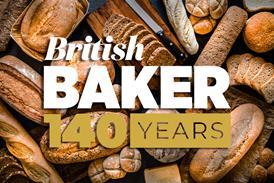








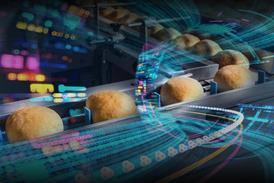

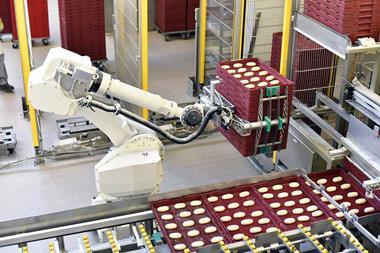
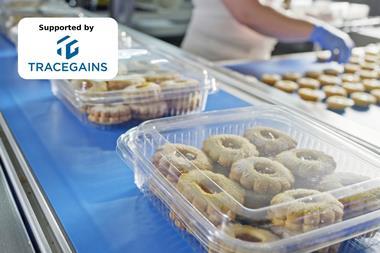

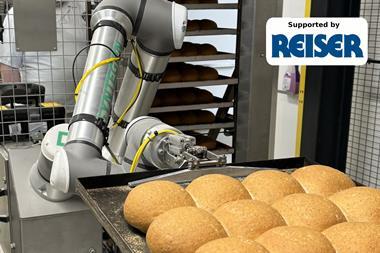
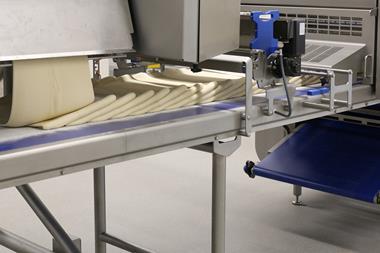

No comments yet